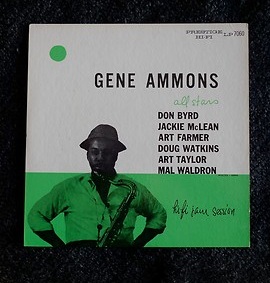Sometimes these promises are strictly kept. Boudleaux Bryant, who wrote (with wife Felice) most of the Everly Brothers' hits, believed in whole rhymes, and obvious rhymes, because, he said, them made the listener a sort of co-composer. If you listen to
There goes my baby, with someone new,...you can sing the end of the line before you even hear it.
She sure looks happy, I sure am...
Other times--and this is what makes art so exciting--the promise is broken. T. S. Eliot famously broke one at the beginning of "The Love Song of J. Alfred Prufrock," when he promised the reader a tetrameter line, rhymed couplets, and a dreamy romanticism with
Let us go then, you and I,and then he breaks all three of those promises with
When the evening is spread out against the sky
Like a patient etherized upon a table.If you break a promise, you have to break it with purpose. not like the young saxophone player who jumped up on the Jazzmobile stage in New York and wanted to jam with Frank Foster. Foster graciously welcomed him, and called for a blues in B-flat. The young guy burst into a cacophony of yawps and screeches.
"What are you doing?" Foster asked.
"I'm just playing what I feel."
"Well, feel something in B-flat, motherfucker."
The beboppers would famously promise a romantic ballad from the Great Americam Songbook, then break that promise by upping the tempo as they began to improvise, playing it, in Chuck Berry's words, "too darn fast," and "changi[ing] the beauty of the melody until it sounds just like a symphony."
And that broken promise became the promise, one that the fan who really had no kick against modern jazz came to expect.
And so it is with Gene Ammons, on the second session of this Friday at Rudy's. Jackie McLean is still there, and so is Donald Byrd, and so is the rhythm section. Art Farmer has joined the merry crew.
 And on the second song of the session, which is "We'll Be Together Again," Ammons knows that you know he's going to keep the promise to break the promise, so he teases a bit, drawing out notes almost to the breaking point. The song was written by an unlikely contributor to the Great American Songbook: Frankie Laine, with music by his pianist and music director Carl T. Fischer. It's a beautiful melody, one that found its way into the repertoires of some of our finest singers. Ammons, a great ballad player, gives us the beauty of the melody, but the tease is there too. And with McLean, Byrd and Farmer along for the ride, there's plenty of adventure ahead, enough to make ten minutes of wonderful music, coming back in the end to the melody, and Ammons' drawn-out notes.
And on the second song of the session, which is "We'll Be Together Again," Ammons knows that you know he's going to keep the promise to break the promise, so he teases a bit, drawing out notes almost to the breaking point. The song was written by an unlikely contributor to the Great American Songbook: Frankie Laine, with music by his pianist and music director Carl T. Fischer. It's a beautiful melody, one that found its way into the repertoires of some of our finest singers. Ammons, a great ballad player, gives us the beauty of the melody, but the tease is there too. And with McLean, Byrd and Farmer along for the ride, there's plenty of adventure ahead, enough to make ten minutes of wonderful music, coming back in the end to the melody, and Ammons' drawn-out notes.The session also has "Jammin' with Gene," a version of "Red Top" that allows for fourteen minutes of jammin', and "Not Really the Blues," another Ammons tease, because anything he plays is really the blues. One odd choice: Donald Byrd is identified on the album's front cover (though not the back) as Don Byrd.

No comments:
Post a Comment